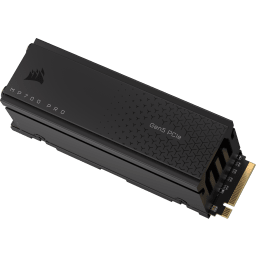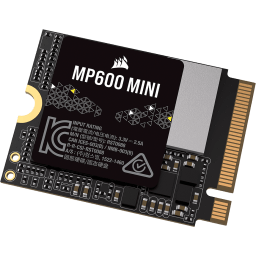Når det drejer sig om rygraden i din digitale lagring, kæmper to trofaste herrer om rampelyset - den trofaste harddisk (HDD) og det fremadstormende solid state-drev (SSD), og det er afgørende at forstå nuancerne mellem disse lagringsmuligheder. Det er et teknologisk opgør, der er mere betydningsfuldt end bare hastighed vs. kapacitet. Det handler om din brugeroplevelse, din maskines levetid og din computer- og spiloplevelses smidighed.
Vi vil dissekere disse lagringsgiganter ved ikke bare at fortælle, hvad de er, men også hvorfor det betyder noget for din oplevelse som bruger. Uanset om du bygger en ny gaming-pc eller ønsker at opgradere din bærbare computer, handler beslutningen om at få mest muligt ud af din investering.

Først en grundbog om det grundlæggende.
Hvad er en HDD? (Harddiskdrev)
En harddisk er den ældre type lager, der traditionelt findes i computere. Den består af en roterende disk eller plade, som data skrives til, læses fra og slettes. Pladerne er parret med magnetiske hoveder, som regel anbragt på en bevægelig aktuatorarm, som læser og skriver data til overfladerne.
Hvad er en SSD? (Solid State Drive)
Et Solid-State Drive bruger flash-hukommelse til at lagre data vedvarende. I modsætning til andre typer hukommelse kræver flash ikke konstant strøm for at bevare data, hvilket gør det til et særligt populært valg til bærbare enheder.
Nu, hvor vi har sat scenen, er det egentlige spørgsmål: "Hvad adskiller dem fra hinanden? Vi taler ikke bare om akronymerne eller den tekniske jargon, vi diskuterer de virkelige konsekvenser for dig som bruger.
HDD vs SSD: Hastighed og ydeevne
Når det gælder hastighed og ydeevne, er SSD'en den klare mester. SSD'er kan tilgå data næsten øjeblikkeligt med læse- og skrivetider, der er eksponentielt hurtigere end deres roterende HDD-modstykker. Denne forskel giver sig udslag i hurtigere opstartstider, hurtigere programstarter og forbedret generel systemrespons.
I et spilmiljø, hvor hvert sekund tæller, kan en SSD f.eks. reducere indlæsningstiden betydeligt og give en problemfri, uafbrudt oplevelse. I modsætning hertil kan en HDD føre til lange ventetider og endda hikke under spillet, da disken kæmper for at holde trit med processoren og hukommelsen.
Men det handler ikke kun om spil. Uanset om du redigerer videoer, kører kompleks software eller bare navigerer i dit operativsystem, kan en SSD gøre en verden til forskel. Det er en investering i sparet tid og øget produktivitet.
HDD vs SSD: Kapacitet og omkostninger
Det er her, harddisken kæmper tilbage. HDD'er tilbyder større lagerkapacitet til en betydeligt lavere pris sammenlignet med SSD'er. Hvis du har brug for at gemme store biblioteker med mediefiler, eller hvis du arbejder med pladskrævende programmer, kan en harddisk være den mest økonomiske løsning.
Selv om SSD'er er blevet billigere i årenes løb, er prisen pr. gigabyte stadig i høj grad til fordel for HDD'er, når det drejer sig om terabytes lagerplads. For mange budgetorienterede brugere er HDD'er standardvalget for et stort, pålideligt lagermedie.
HDD vs SSD: Holdbarhed og pålidelighed
En SSD uden bevægelige dele er i sagens natur mere holdbar end en harddisk. Mekaniske fejl, som er en hovedårsag til datatab på harddiske, findes stort set ikke på en SSD. Denne iboende robusthed gør SSD'er til den bedste løsning til bærbare computere og andre mobile enheder, hvor enheden kan blive udsat for rystelser og bevægelser.
Desuden giver SSD'er hurtigere dataoverførselshastigheder, ikke kun fordi de tilgår data på en anden måde, men også fordi de ikke nedbrydes over tid på samme måde som harddiske. Jo mere en harddisk bruges, jo mere slides de bevægelige dele, og det kan føre til langsommere ydeevne og potentielle fejl.
HDD vs SSD: Miljøpåvirkning
I vores stadig mere miljøbevidste tid bliver miljøpåvirkningen af vores teknologiske beslutninger stadig mere relevant. SSD'er er generelt mere energieffektive end HDD'er og bruger ofte mindre strøm under brug. Dette, kombineret med deres længere levetid og mindre hyppige behov for udskiftning, kan potentielt sænke dit CO2-fodaftryk over tid.

Træf det valg, der passer til dig
Konklusionen er, at valget mellem en HDD og en SSD kommer an på dine specifikke behov og prioriteter. Hvis hastighed, holdbarhed og ydeevne står øverst på din liste, er en SSD det naturlige valg. For dem, der ønsker at maksimere lagerplads på et budget, er en HDD stadig umulig at slå. Det vigtigste er at træffe en informeret beslutning, der passer til dine brugsmønstre, behov og den livscyklus, du forventer af din enhed.
Når alt kommer til alt, er det meningen, at teknologien i din computer eller konsol skal tjene dig. Det handler om at drive din produktivitet, din underholdning og din digitale verden. Lageret er kun én komponent, men det er en kritisk komponent. Uanset om du er en dedikeret gamer eller en weekendkriger, uanset om du bygger den ultimative maskine eller vedligeholder en familiecomputer, vil en forståelse af disse forskelle hjælpe dig med at træffe en mere klar beslutning, når du skal vælge et lagringsdrev.
Hvis du ønsker at opgradere dit system, uanset om det er din stationære, bærbare eller håndholdte enhed, håber vi bestemt, at du overvejer CORSAIR til alle dine lagringsbehov.
PRODUKT REGISTRERING












